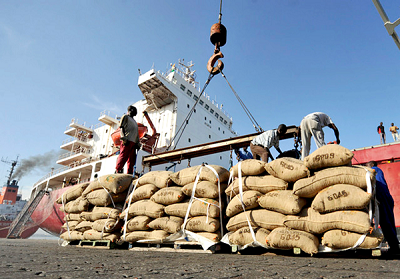Ghana’s Cocoa Sector Risks FX Losses Without Urgent Reform, Dutch Envoy Warns
Ghana’s cocoa industry – one of the country’s primary foreign exchange earners – faces a critical threat to its long-term competitiveness unless urgent investments are made to scale up production and align with global sustainability requirements, the Netherlands Ambassador to Ghana has cautioned.
Speaking at a high-level public-private dialogue in Accra focused on Ghana’s preparedness for the EU’s upcoming Corporate Sustainability Due Diligence Directive (CSDDD), Ambassador Jeroen Verheul warned that structural inefficiencies, declining yields, and lagging reforms could erode Ghana’s market dominance in the global cocoa supply chain.
“If production is going down as it is going down right now, then that means there is less export of cocoa and less foreign exchange earned by farmers and less foreign exchange earned by the economy,” said Mr. Verheul. “So it’s a threat to the economy, there is an imperative for the Ghana economy to maintain the cocoa sector, to invest in it, to make it more productive [and] competitive.”
Ghana is the world’s second-largest cocoa producer after Côte d’Ivoire, but new competitors such as Brazil and Ecuador have ramped up production in recent years, aided by large-scale, mechanised farming and robust value chain integration.
Mr. Verheul noted that Ghana’s future competitiveness will depend on its ability to increase productivity through scalable investments while also ensuring compliance with new EU sustainability frameworks, which are increasingly becoming prerequisites for market access.
EU Sustainability Demands Reshaping Export Dynamics
The EU’s CSDDD, which aims to enforce environmental and human rights due diligence across supply chains, is expected to alter the dynamics of agricultural exports from Africa. Ghanaian cocoa, a key export to the European market, could face heightened scrutiny unless producers meet stricter traceability, labour, and deforestation-free standards.
To help bridge the compliance gap, the International Trade Centre (ITC) has launched interventions to support Ghana’s alignment with international standards. Larry Attipoe, National Coordinator for ITC’s value chain initiatives in Ghana, said the programme is designed to equip producers and exporters with technical knowledge and market intelligence.
“We bring information. What does it take you to produce to meet international demands [and] meet all the specifications,” Mr. Attipoe said, noting that such support will be essential in strengthening the resilience and export viability of Ghana’s cocoa sector.
Macro Risks Loom as Production Slows
With the Bank of Ghana relying heavily on foreign exchange inflows from commodities like cocoa, a sustained decline in production could have broader macroeconomic implications, particularly at a time when Ghana is undergoing an IMF-supported economic recovery programme.
Stakeholders have repeatedly called for a comprehensive overhaul of Ghana’s cocoa ecosystem, including land reform, youth participation, access to inputs, and climate resilience. However, implementation has been slow, constrained by funding gaps and governance challenges.
For now, the message from Ghana’s development partners is clear: without structural change and increased productivity, the country could lose its grip on a key pillar of its economic stability.



